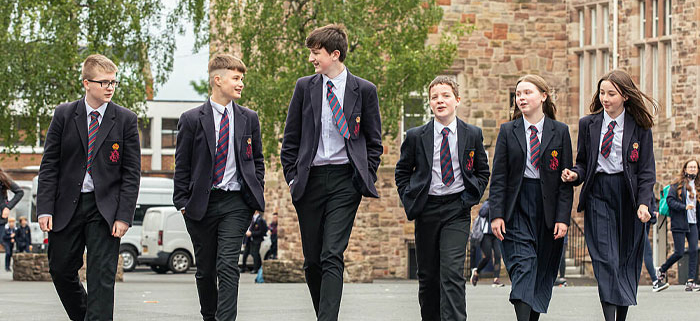British Sign Language GCSE takes centre stage
In a significant stride towards inclusivity and cultural celebration, the Department for Education has unveiled the subject content for the new British Sign Language GCSE. This milestone signifies that pupils across the UK will soon have the opportunity to embrace BSL as a formal qualification.
A resounding yes to a BSL GCSE!
The path to introducing the BSL GCSE has been paved with enthusiastic support from parents, teachers, and organizations within both the deaf and hearing communities. A 12-week public consultation period has garnered overwhelmingly positive responses, shaping the content to be knowledge-rich, diverse in teaching, and appropriately challenging. According to the Department for Education, students undertaking this GCSE will not only acquire the ability to communicate effectively with other signers in various settings but will also gain valuable life skills.
Exam board syllabus approval from 2025
Scheduled for exam board syllabus approval from September 2025, the BSL GCSE aims to equip students with the proficiency to communicate fluently using BSL, coupled with a deep understanding of the language’s history in the UK.
Education secretary’s vision
Education Secretary Gillian Keegan emphasized the potential impact of studying British Sign Language, stating, “Studying British Sign Language can open so many doors for young people, giving pupils an understanding of how thousands of people communicate and ultimately even expanding job prospects. This new qualification will not only break down barriers and give young people valuable new skills but also celebrate the history and rich culture of British Sign Language.”
Daniel Jillings and the right to a British Sign Language GCSE
Susan Daniels OBE, Chief Executive of the National Deaf Children’s Society, echoed this sentiment, highlighting the pivotal role of a BSL GCSE in breaking down barriers and celebrating the rich culture and history of British Sign Language. Daniels acknowledged the concerted effort that has led to this moment, including the determined advocacy of young deaf campaigner Daniel Jillings, who played a key role in championing the right to study a GCSE in BSL.
A win for all pupils
Crucially, the BSL GCSE aligns with all qualifications, ensuring that it is open to all pupils and will be recognized and accepted in school and college performance tables. The Department of Education underlines the international recognition of this qualification, emphasizing that pupils who undertake this study will develop skills in expressing and negotiating meaning through visual spatial language, enhancing communication and visual memory skills that will be advantageous throughout their lives.
A holistic approach to BSL education
Beyond the practical aspect of learning effective signing, the BSL GCSE promises to provide students with a profound understanding of the history of sign language in the UK. This holistic approach aims not only to impart a language but to foster a deep appreciation for the cultural tapestry woven by British Sign Language.
As the educational landscape embraces diversity and inclusion, the introduction of the BSL GCSE stands as a testament to the commitment to breaking down barriers, celebrating cultural richness, and acknowledging the vibrant history of British Sign Language.




Leave a Reply
Want to join the discussion?Feel free to contribute!